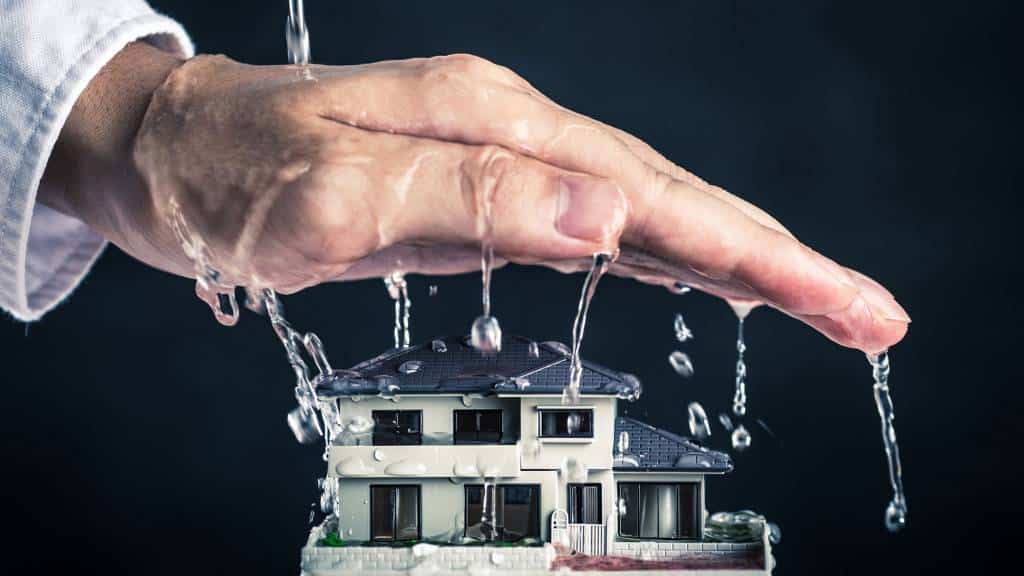Pinpoint Common Triggers for Water Leakage Inside Your Residence
Pinpoint Common Triggers for Water Leakage Inside Your Residence
Blog Article
We have stumbled upon the article involving How to detect water leaks in your home listed below on the web and accepted it made perfect sense to relate it with you in this article.

Leaks not just cause waste of water yet can likewise create unneeded damages to your house and advertise undesirable organic development. By looking and recognizing for everyday circumstances that cause leaks, you can safeguard your house from future leakages and also unneeded damages.
Instantaneous temperature modifications.
Severe temperature modifications in our pipelines can create them to expand and acquire all of a sudden. This development and contraction may trigger fractures in the pipelines, specifically if the temperature level are below freezing. If you maintained an eye on just how your plumbing functions, it would certainly be best. The visibility of the formerly stated circumstances frequently shows a high threat.
Rusty water systems
This might be the cause of staining or warping on your water pipes. If our plumbing system is old, consider replacing the pipelines given that they are at a greater risk of corrosion than the more recent designs.
Defective Pipeline Joints
Pipeline joints can deteriorate over time, resulting in water leaks. If you have loud pipes that make ticking or banging sounds, particularly when the warm water is turned on, your pipeline joints are most likely under a whole lot of pressure.
Encroaching roots
The majority of water leakages begin outside the home rather than inside it. You might see damp patches or sinkholes in your yard, and also that may mean that tree origins are getting into water lines causing water to permeate out.
Poor Water Connectors
At times, a leakage can be triggered by loose pipes and pipelines that supply your devices. Typically, shifting is what creates the loose water Connections. You could find when it comes to a washing device, a tube may spring a leak as a result of shaking during the spin cycle. In case of a water links leakage, you may discover water running directly from the supply line or pools around your devices.
Blocked Drains
Obstructed drains may be aggravating and inconveniencing, however they can occasionally wind up causing an overflow resulting in rupture pipelines. Maintain getting rid of any materials that may go down your drains that might block them to prevent such troubles.
All the above are sources of leaks but not all water leaks result from plumbing leaks; some leakages could come from roofing leakages. All leaks ought to be repaired right away to prevent water damage.
Leaks not just trigger waste of water however can likewise cause unneeded damages to your house and advertise undesirable organic development. By looking and recognizing for daily situations that create leaks, you can shield your house from future leaks as well as unnecessary damages. Today, we will look at 6 leak triggers that may be triggering your pipes to leak.
At times, a leakage can be triggered by loosened hose pipes and also pipes that supply your devices. In case of a water links leakage, you may observe water running straight from the supply line or puddles around your home appliances.
How To Check For Water Leak In Your Home
How To Check for Leaks
The average household's leaks can account for nearly 10,000 gallons of water wasted every year and ten percent of homes have leaks that waste 90 gallons or more per day. Common types of leaks found in the home are worn toilet flappers, dripping faucets, and other leaking valves. These types of leaks are often easy to fix, requiring only a few tools and hardware that can pay for themselves in water savings. Fixing easily corrected household water leaks can save homeowners about 10 percent on their water bills.
To check for leaks in your home, you first need to determine whether you're wasting water and then identify the source of the leak. Here are some tips for finding leaks:
Take a look at your water usage during a colder month, such as January or February. If a family of four exceeds 12,000 gallons per month, there are serious leaks.
Check your water meter before and after a two-hour period when no water is being used. If the meter changes at all, you probably have a leak.
Identify toilet leaks by placing a drop of food coloring in the toilet tank. If any color shows up in the bowl after 10 minutes, you have a leak. (Be sure to flush immediately after the experiment to avoid staining the tank.)
Examine faucet gaskets and pipe fittings for any water on the outside of the pipe to check for surface leaks.
Undetected water leaks can happen without the home or business owner even realizing. If you suspect a water leak, but not able to find the source. It is time to contact a professional water leak detection service, The Leak Doctor.
How To Find a Water Leak In Your Home
https://www.leakdoctor.com/blog/How-To-Check-For-Water-Leak-In-Your-Home_AE197.html

As a serious reader about Common Water Leaks In House, I was thinking sharing that excerpt was worth the trouble. Sharing is good. Helping people is fun. I praise you for your time. Don't hesitate to come by our website back soon.
Quality-driven emergency plumbing solutions. Report this page